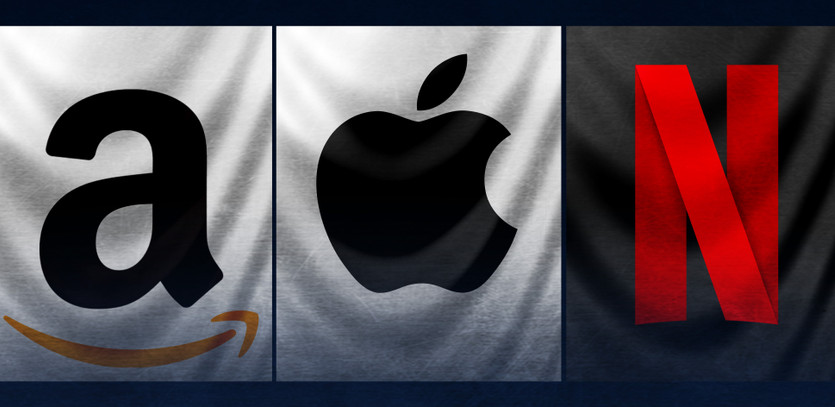Unraveling the Enigma of FAANG Companies
For anyone navigating the investment world, gaining a deep understanding of the colossal entities that dictate the stock market's rhythm is of paramount importance. Certain mammoth corporations exert an extraordinary influence due to their expansive size and pervasive clout. In particular, the pillars of the market:
- Meta (previously Facebook)
- Amazon
- Apple
- Netflix
- Google (parented by Alphabet)
These are the remarkable enterprises renowned as the FAANG companies, a term not to be mistaken with FAAMG.
Investors who strategically aligned their portfolios with these companies over the past years have often reaped considerable benefits. Their vast market capitalization implies that virtually all investors have some degree of exposure to these entities, even if they don't directly hold shares.
The financial lexicon was graced with the acronym "FAANG" through the efforts of acclaimed CNBC anchor, Jim Cramer. Originally, he coined the term "FANG," with Apple being a later addition. The inception of the term was attributed to Bob Lang, a technical analyst with whom Cramer once collaborated.
While FAANG is a specific reference to these five behemoth firms, it is also broadly used to refer to fast-growing shares in the technology and consumer discretionary sectors, setting the trend for high-growth investment.
The Key Insights You Should Know
- The FAANG group is composed of Meta, Amazon, Apple, Netflix, and Google (Alphabet).
- The collective stock movements of these companies significantly influence the total market capitalization of the stock market.
- All FAANG companies are listed on either the New York Stock Exchange (NYSE) or the NASDAQ, making share purchases remarkably straightforward for most investors.
Unmasking the Significance of FAANG Stocks
Even if you don't directly hold shares in FAANG stocks, keeping a close eye on their movements is critical. This is due to their commanding share of the stock market's total market capitalization, which in turn impacts overall market movements.
As of March 2022, the total market value of U.S. stocks was approximately $45 trillion. This astronomical sum marks a significant climb from the $10.7 trillion figure in December 2001, a time when Netflix and Meta were not yet public entities.
By 2022, FAANG stocks were collectively valued at slightly under $7 trillion. This staggering number suggests that these companies represented around 15% of the total U.S. stock market value as of March 2022.
The S&P 500 index, which includes the 500 largest U.S. companies by market capitalization, features four of the FAANG firms—Apple, Amazon, Meta, and Google—within the top 10. Any mutual fund or exchange-traded fund (ETF) that seeks to replicate the S&P 500 will likely have a considerable investment in FAANG stocks.
For instance, the Vanguard 500 Index Fund, which mirrors the returns of the S&P 500, invests around 12% of its entire portfolio in the five FAANG stocks. Therefore, it's clear that these stocks' performance significantly influences overall stock market returns.
A Glimpse into Each FAANG Giant
Meta (FB)
Meta made its public debut in 2012, eight years after its inception. Its flagship product, Facebook, remains the world's largest social media platform, with over 2.7 billion active users. The company's growth trajectory has been marked by strategic acquisitions, bringing Instagram, Oculus VR, WhatsApp, and more under its wing.
Despite facing scrutiny over its privacy practices, the company's share price has experienced steady growth over the years, more than tripling in value since 2015.
Amazon (AMZN)
From its humble beginnings as an online bookseller in 1995, Amazon has evolved into the world's largest online retailer. Its disruptive presence spans the retail sector, cloud computing solutions through its Amazon Web Services (AWS) unit, online streaming of music and movies, and consumer electronics. Amazon's share price has more than quadrupled since 2016, rewarding patient investors with profitable returns.
Apple (APPL)
As the FAANG group's veteran, Apple's history extends back to the dawn of personal computing. While it still produces computers, smartphones now contribute nearly half of its revenue. The company's share price has mirrored the trajectory of its FAANG peers, quadrupling since 2016.
Netflix (NFLX)
Netflix, the smallest FAANG member in terms of market capitalization, has nonetheless had a seismic impact on the video rental and television business. From its initial DVD rental model, Netflix has pivoted to streaming movies and original content, boasting over 222 million subscribers. Despite spending heavily on programming and seeing a slight lag in new membership growth in 2022, the company's shares have tripled in value since 2017.
Google, Alphabet (GOOGL)
Alphabet, Google's parent company, offers the world's most popular search engine and a broad portfolio of investments ranging from smartphones to biotech. Like its FAANG counterparts, Alphabet's shares have more than quadrupled in value since 2015.
How to Invest in FAANG Stocks
Entering the world of FAANG investing can seem a daunting endeavor. But in reality, it is a fairly straightforward process, armed with the right tools and knowledge. You'll find these titanic corporations listed on the world's most prominent exchanges - either the New York Stock Exchange (NYSE) or the NASDAQ. This makes the purchase of their shares an effortless process for most investors.
To guide you on this journey, let's break down the potential paths to investing in FAANG stocks:
-
The Direct Approach: One of the simplest ways to invest in FAANG companies is by purchasing their shares outright. This is made easier than ever with the proliferation of online brokerages. Platforms like E-Trade, Fidelity, TD Ameritrade, or Robinhood bring the trading floor to your fingertips, allowing you to buy and sell shares in FAANG companies with just a few clicks.
-
The High-Roller's Game: It's worth noting that investing directly in FAANG stocks often requires a substantial financial commitment. For instance, as of March 2022, a single share in Google was trading at approximately $2,500, with Amazon not far behind at just under $3,000. For many investors, the cost of direct investment might be prohibitive, but for those with deeper pockets, the rewards can be substantial.
-
Investing Through Funds: If you're priced out of buying individual shares or if you're simply more comfortable with a diversified approach, fear not. There's another route to gaining exposure to these tech titans. Many mutual funds and exchange-traded funds (ETFs) include FAANG stocks in their portfolios. In particular, any index fund tracking the S&P 500 or broader stock market will most likely hold FAANG shares.
-
S&P 500 Focus: For example, the Vanguard 500 Index Fund, which aims to mirror the returns of the S&P 500, invests about 12% of its entire portfolio in FAANG stocks. By investing in such a fund, you indirectly own a piece of each FAANG company and gain exposure to the general market movement.
-
Tech & Communication Funds: Similarly, Large-cap funds and funds focusing on the tech and communications industries are also likely to hold a substantial proportion of FAANG stocks.
-
Whether you're a small investor just starting, an experienced trader looking for diversification, or a high-net-worth individual or institution, there's a way to gain exposure to the extraordinary growth and influence of the FAANG companies.
The secret to success in the world of FAANG stocks, as with all investments, lies not only in understanding the financial landscape but also in formulating a strategy that fits your individual goals and risk tolerance. As always, you should consider seeking advice from financial professionals and conduct your research before making any investment decisions.





